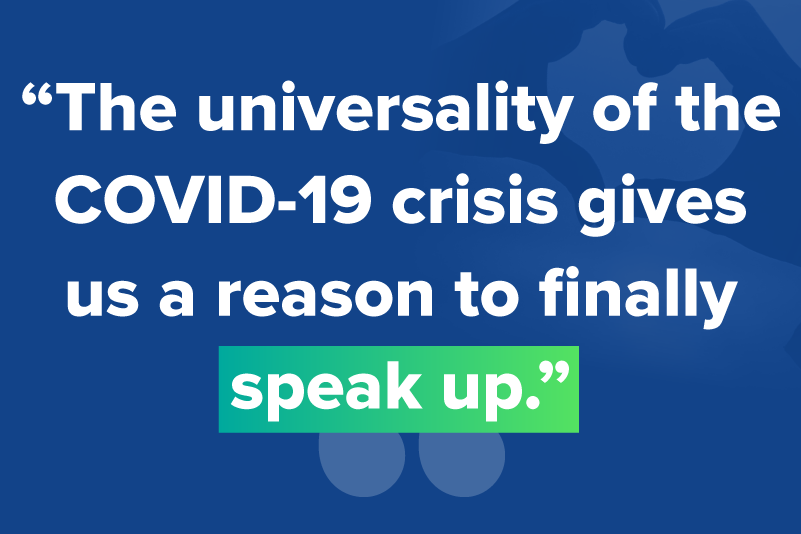May 26, 2020
By Jessica Schmidt

On New Year’s Eve 2019, I rejoiced in the possibilities of a new year. Things were going to be different. The prior year had been one of the most painful I can remember, as I experienced a severe episode of major depression while working full time and going to school. I was experiencing little improvements in my mood with medication changes, but the relief did not last.
As I went back to school after winter break, the weeks passed quickly and so did my happiness. By February, I was already burnt out by school. About a year and a half before that, I decided that I wanted a change in role. I had been fairly happy as a nurse, but I knew I wanted to help people in a different capacity. So I applied to a nurse practitioner program and got in.
This program turned out to be infinitely more challenging intellectually, emotionally and socially than I ever imagined. The stress level was very high as I neared the end of winter quarter. I was feeling so worthless, depressed, lost, hopeless, frustrated and suicidal. The thought came to me, “you will never make it in this role. You cannot help your patients. You cannot even help yourself! Just give up already.”
On the final day of winter quarter, I felt like I had nothing left to give anymore. I could not bear another day. My depression had pushed me to the breaking point. Then COVID-19 toppled everyone’s lives over, leaving us to fend for ourselves in a new world with a whole new set of rules.
I consider myself an empathetic person (perhaps to a fault), and I could feel the weight of the anxiety and grief of the world pushing me down. I would have thought this situation would drive me further down into depression and push me to give up on my sobriety (it was the end of the world and all). But I was wrong. Instead I felt a newfound connection with humanity.
Everyone on earth was essentially going through the same thing; no one was immune to the effects of COVID-19. I had been learning about self-compassion at the time, and this situation fit perfectly into the “common humanity” piece. Self-compassion has three parts: kindness, common humanity and mindfulness. It involves adopting practices of kindness towards ourselves, as well as kindness towards others who may be struggling with the same emotions.
Mindfulness involves accepting the moment, being in it without judgement. The pandemic is a true test of self-compassion if there ever was one. Through all this, I have realized that everyone is suffering. Individually we are not special in our fear, anger, grief, sadness or confusion in this situation.
The feeling of helplessness and hopelessness that COVID-19 has brought out is not new to many of us struggling with mental illness. We can use what we have learned through our own suffering to connect with others. Despite whatever past trauma, faulty brain chemistry or maladaptive coping skills we have dealt with, individuals with mental illness are coming from a place of power in this pandemic. Mental illness tends to make us suffer in silence. As terrible as it is, there is an opportunity in these times. The universality of the COVID-19 crisis gives us a reason to finally speak up.
Submit To The NAMI Blog
We’re always accepting submissions to the NAMI Blog! We feature the latest research, stories of recovery, ways to end stigma and strategies for living well with mental illness. Most importantly: We feature your voices.
LEARN MORE